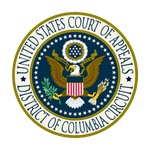
The U.S. Department of Justice (DOJ) has asked the United States Supreme Court to lift a federal district court injunction that is currently blocking the government from carrying out four scheduled executions. The federal prosecutors’ December 2, 2019 filing came within hours of a ruling by a unanimous federal appeals panel in Washington that had refused to vacate the injunction. The first of the federal executions is scheduled for 8:00 a.m. (Eastern time) on Monday, December 9.
On July 25, Attorney General William Barr announced that the federal government intended to resume executions after a 16-year hiatus, starting with five executions between December 9 and January 15. The announcement said that Barr had directed the Federal Bureau of Prisons to adopt a new execution protocol and set the execution dates, although the government had made no attempt to comply with federal rulemaking procedures and a 14-year-old legal challenge to the government’s execution practices was pending in the federal courts in Washington.
The five federal prisoners targeted by the death warrants sought to stay their executions on a variety of procedural and constitutional grounds. Lezmond Mitchell, scheduled to be executed on December 11, received a stay of execution to complete review of an appeal that was already underway in his case before his death warrant was signed. The other four prisoners — Daniel Lee, Wesley Purkey, Alfred Bourgeois, and Dustin Honken — sought to join the on-going federal execution lawsuit and asked U.S. District Court Judge Tanya S. Chutkan to halt their executions pending full judicial review of their challenges to the legality and constitutionality of the government’s proposed execution plan.
On November 20, Judge Chutkan issued a preliminary injunction on the basis of one of their claims, saying that the Department of Justice “exceeded its statutory authority” in unilaterally establishing a federal execution protocol and that the prisoners were likely to prevail on their claim that the DOJ had unlawfully adopted the protocol. The court reserved judgment on the other issues raised by the prisoners.
The DOJ filed an emergency application in the United States Court of Appeals for the District of Columbia Circuit, asking the appeals court to vacate or stay enforcement of the injunction. In an unsigned order, Judges Judith W. Rogers, Thomas B. Griffith, and Neomi Rao — appointed by Presidents Bill Clinton, George W. Bush, and Donald Trump, respectively — unanimously declined to disturb the injunction. The one-page order did not address the individual arguments presented by the DOJ and the prisoners, but stated simply that “Appellants [DOJ and the Bureau of Prisons] have not satisfied the stringent requirements for a stay pending appeal.”
In a statement responding to the Circuit Court’s order, Shawn Nolan, one of the lawyers representing the federal death-row prisoners, said, “We are gratified that the Court of Appeals agreed with the District Court that there is no basis to vacate the preliminary injunction in this case. The courts have made clear that the government cannot rush executions in order to avoid judicial review of the legality and constitutionality of its new execution procedure.”
The DOJ quickly appealed the decision to the U.S. Supreme Court. In its Supreme Court pleading, the DOJ called Chutkan’s interpretation of the law “implausible” and said her order was a “flawed injunction against the implementation of lawful executions.” The Court is expected to rule before the first of the scheduled executions. A ruling in favor of the prisoners would temporarily halt their executions until the district court can fully review the various challenges to the federal execution plan. If the Court vacates the injunction, the prisoners are expected to return to the District Court to ask it to issue another preliminary injunction based upon the other pending challenges to the federal execution process.
Sarah N. Lynch, Trump administration asks top court to allow it to resume federal executions, Reuters, December 2, 2019; Mark Berman, Justice Dept. asks Supreme Court to let federal executions proceed after appeals court denial, The Washington Post, December 2, 2019; Tim Ryan, DC Circuit Refuses to Lift Block on Federal Executions, Courthouse News Service, December 2, 2019.
Read the DOJ filing in In re Federal Bureau of Prisons’ Execution Protocol Cases.
Upcoming Executions
Dec 17, 2024
Indiana’s First Execution in 15 Years Raises Serious Constitutional Concerns
Upcoming Executions
Nov 21, 2024

Alabama is Set to Execute Carey Grayson in its Third Nitrogen Gas Execution in 2024
Federal Death Penalty
Nov 14, 2024
